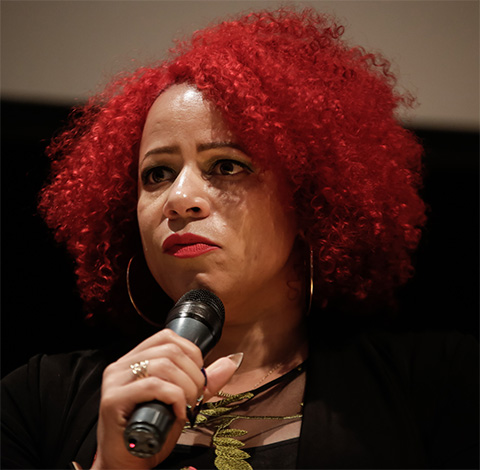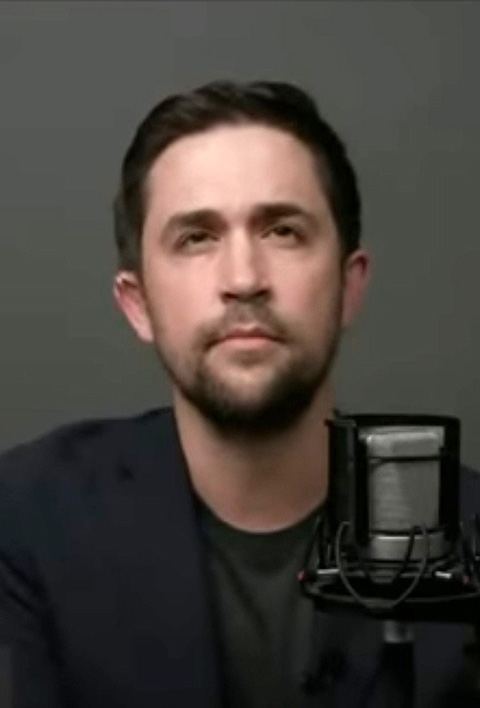5 growing threats to academic freedom
The ability to teach and conduct research free from political interference is the cornerstone of higher education and its contribution to the public good. Academic freedom, however, has become increasingly threatened.
V-Dem Institute, a global research organization that monitors indicators of democracy around the world, determined that academic freedom has “substantially worsened” in the United States in recent years. This is largely due to political and social polarization.

In recent months, professors across the country have sounded the alarm about infringements on academic freedom following crackdowns on pro-Palestine protesters on campus. The current conflict, however, is only the latest iteration of an intensifying decline in academic freedom.
As a researcher who examines the politics of higher education, I believe there are five distinct but mutually reinforcing ways that academic freedom has been threatened in the U.S. in recent years.
1. Legislation and academic gag orders
States across the country have passed educational gag orders that ban the teaching of critical race theory and other concepts. These are sometimes referred to as “divisive concepts” in the laws.
While most of these bills limit what can be said in K-12 classrooms, a report I authored found that 99 bills were introduced – and 10 passed – between 2021 and 2023 that affect higher education. For example, a North Dakota bill bans state universities from hosting discussions of ideas such as “meritocracy is inherently racist.” A similar bill in Tennessee outlaws teaching the idea that someone could be “inherently privileged, racist, sexist or oppressive.”
These bills misrepresent what discussions about race and gender identity actually look like in the college classroom. Rather than framing them as discussions about history and theory, bills like Florida’s so-called “Stop Woke Act” insinuate that teaching students about race and racism is aimed at making them feel guilty. PEN America has described these bills as “designed to chill academic and educational discussions and impose government dictates on teaching and learning.”
2. Activist governing boards
Issues of academic freedom also arise when those without scholarly expertise become involved in academic and curricular decisions. This usually happens through governing boards and trustees who overreach.
Colleges and universities should follow the principles of shared governance, according to the American Association of University Professors. Boards oversee the business of running the institution, and faculty oversee the content taught in classrooms. At some institutions, however, the boards have subverted this. For example, during the COVID-19 pandemic, boards at several schools made unilateral decisions such as revoking tenure without due process. They have also created academic centers without faculty oversight – a core tenet of shared governance.

These decisions have serious consequences. The American Association of University Professors, for example, found that politically appointed board members at University of North Carolina-Chapel Hill regularly “exercise their considerable power” to circumvent faculty autonomy. This includes the board of trustees’ refusal to offer a tenured position to Nikole Hannah-Jones, creator of the 1619 Project, a series of essays and articles in The New York Times Magazine about the impact of slavery on American history. The board also came under fire for establishing the School of Civic Life and Leadership on campus. The school appears designed to teach conservative content that the board prefers rather than to fulfill a curricular need identified by the faculty.
3. Donor influence
Donor influence is also a growing threat to academic freedom. Ideally, donors would view their gifts simply as donations to an institution they trust. In some cases, however, donors play an active role in determining how their money is used. This could mean dictating which speakers are brought to campus, what books are taught in the classroom and what courses are offered.
One of the most dramatic recent examples is the ousting of Harvard President Claudine Gay. Hedge fund billionaire and Harvard donor Bill Ackman played an active role in her forced resignation, threatening a “donor exodus if she stayed.” I believe that if it can happen at Harvard, it could happen at other universities, too.
4. Erosion of tenure
The system of tenure was originally created to protect professors from external political interference. In recent decades, however, fewer and fewer professors have been awarded this privilege. Today, 68% of faculty are working off the tenure track, often in year-to-year contracts, compared with 47% in 1987. The economic precarity of contract positions creates incentives for faculty to censor the content they teach for fear of losing their jobs.
In some states, such as Florida and Texas, state legislators have passed bills weakening tenure protections through the creation of post-tenure review procedures. This gives administrators greater authority to fire tenured faculty. These bills make faculty increasingly vulnerable to external political influence.

5. Delegitimization of higher education
As I’ve demonstrated in my research, right-wing activists have built a political infrastructure of think tanks and media outlets that specialize in portraying higher education in a negative light. This includes bringing intentionally provocative speakers such as Milo Yiannopoulos and Charlie Kirk to campus and funding media outlets that specialize in ranting about “liberal bias” on college campuses.
Partisan political operatives, such as the Manhattan Institute’s Christopher Rufo, have mainstreamed the claims that faculty regularly engage in political indoctrination and that professors teach content that is divisive and anti-American. For example, days after Hamas’ invasion of Israel on Oct. 7, 2023, Rufo posted on X that conservatives should “create a strong association” between Hamas, Black Lives Matter, the Democratic Socialists of America and “academic ‘decolonization.’”
These narratives are designed to justify and legitimize the ongoing attacks on academic freedom. The implication is that faculty are the enemy and that legislatures, governors and governing boards can save higher education.
Fierce debates about what should be taught at colleges and universities is part of what academic freedom is all about. But attacks on academic freedom seek to displace the voice of faculty experts with those of partisan legislatures, trustees and donors. I believe this should be disconcerting for anyone who values free and critical thinking.
This article is republished from The Conversation under a Creative Commons license. Read the original article.
![]()
Enjoy reading ASBMB Today?
Become a member to receive the print edition four times a year and the digital edition monthly.
Learn moreFeatured jobs
from the ASBMB career center
Get the latest from ASBMB Today
Enter your email address, and we’ll send you a weekly email with recent articles, interviews and more.
Latest in Careers
Careers highlights or most popular articles

Upcoming opportunities
ASBMB's PROLAB award helps graduate students and postdoctoral fellows spend up to six months in U.S. or Canadian labs.

From humble beginnings to unlocking lysosomal secrets
Monther Abu–Remaileh will receive the ASBMB’s 2026 Walter A. Shaw Young Investigator Award in Lipid Research at the ASBMB Annual Meeting, March 7-10 in Washington, D.C.

Chemistry meets biology to thwart parasites
Margaret Phillips will receive the Alice and C. C. Wang Award in Molecular Parasitology at the ASBMB Annual Meeting, March 7-10 in Washington, D.C.

Decoding how bacteria flip host’s molecular switches
Kim Orth will receive the Earl and Thressa Stadtman Distinguished Scientists Award at the ASBMB Annual Meeting, March 7–10, just outside of Washington, D.C.

Defining JNKs: Targets for drug discovery
Roger Davis will receive the Bert and Natalie Vallee Award in Biomedical Science at the ASBMB Annual Meeting, March 7–10, just outside of Washington, D.C.

Upcoming opportunities
No matter where you are in your career and what future path you aspire to, everyone needs leadership skills. Join ASBMB for practical strategies for building and practicing leadership skills.

